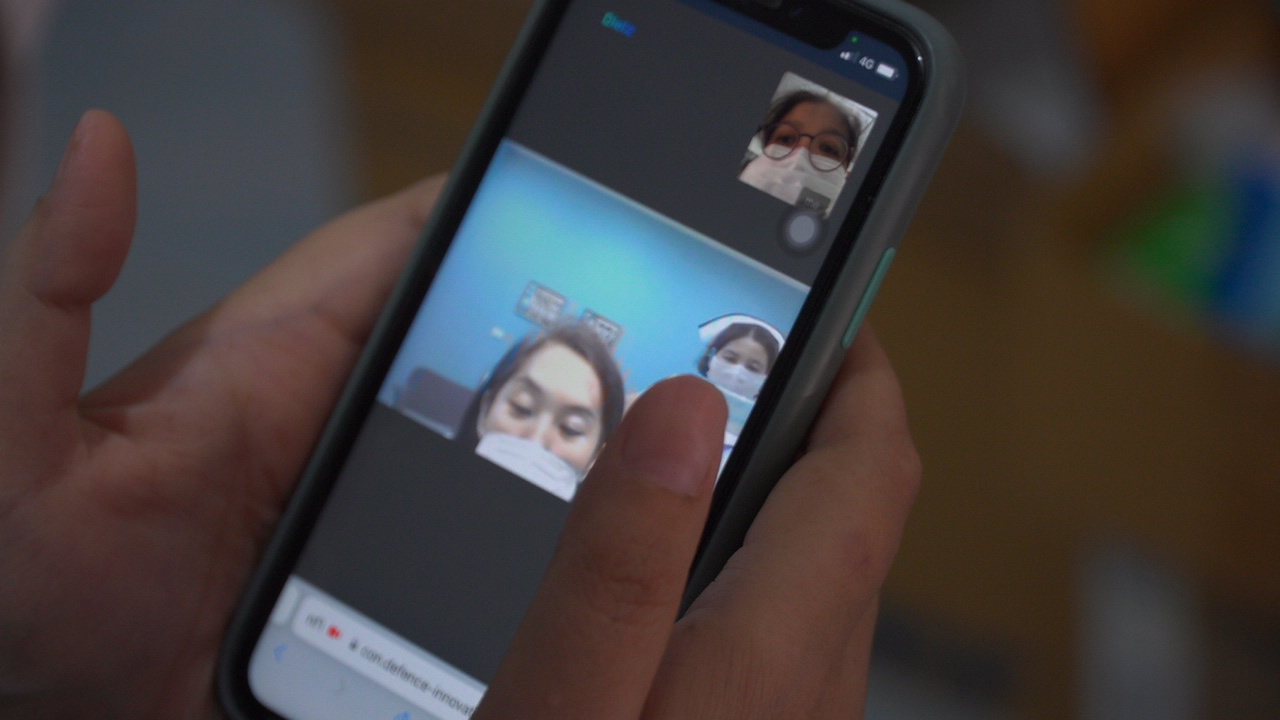
- Home
- DescriptionNews
Ayutthaya hospital showcases telemedicine adoption success
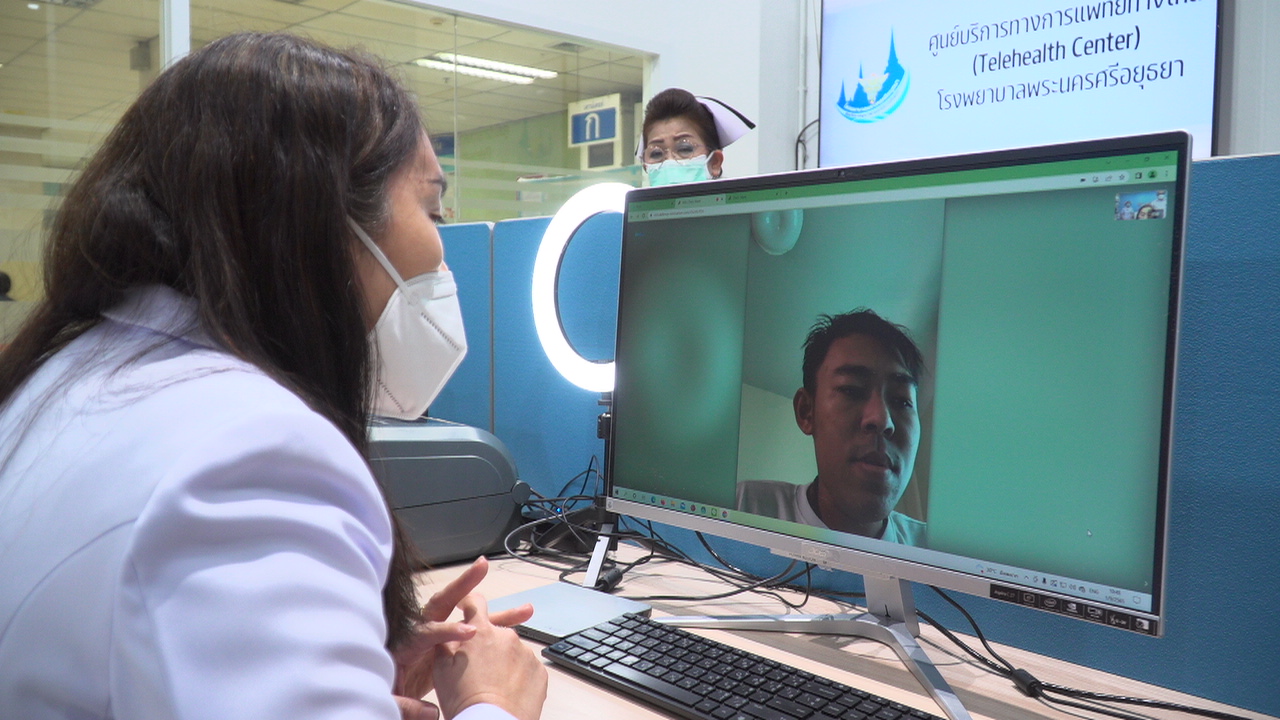
Ayutthaya hospital showcases telemedicine adoption success
While the COVID-19 pandemic engulfed Thailand, new health solutions emerged to save the health system and people's lives.
Telemedicine was one of those. It has been widely adopted by medical practitioners and patients since the pandemic started.
It allows hospital staff to continue providing essential health services to patients despite the social distancing measures.
Phra Nakhon Si Ayutthaya Hospital is one of many state health units that adopted telemedicine during the pandemic and has continued using online channels to communicate with patients until now.
The hospital staff first started using telemedicine with COVID-19 patients isolated at home. Then it has been expanded to patients coping with other diseases including diabetes, kidney disease, and hypertension which reduces their hospital visiting time and travel costs.
.jpg)
Dr Chokchai Leetochawarit, Director of Phra Nakhon Si Ayutthaya Hospital, said that his staff had used telemedicine with patients living with diabetes type 1, kidney diseases, and mental illnesses.
Another target group is inmates, who usually can’t access medical consultation regularly.
This effort is in line with a policy given by Deputy Prime Minister and Minister of Public
HealthAnutin Charnvirakul, who emphasizes the need for hospitals to initiate new ways of providing health services in order to increase people’s healthcare access regardless of their financial status and geographical areas.
The NHSO’s record shows that more than 60 state hospitals nationwide have adopted telemedicine. More than 89,000 patients have used telemedicine to consult with hospital staff.
Encourage patients’ behavioral changes
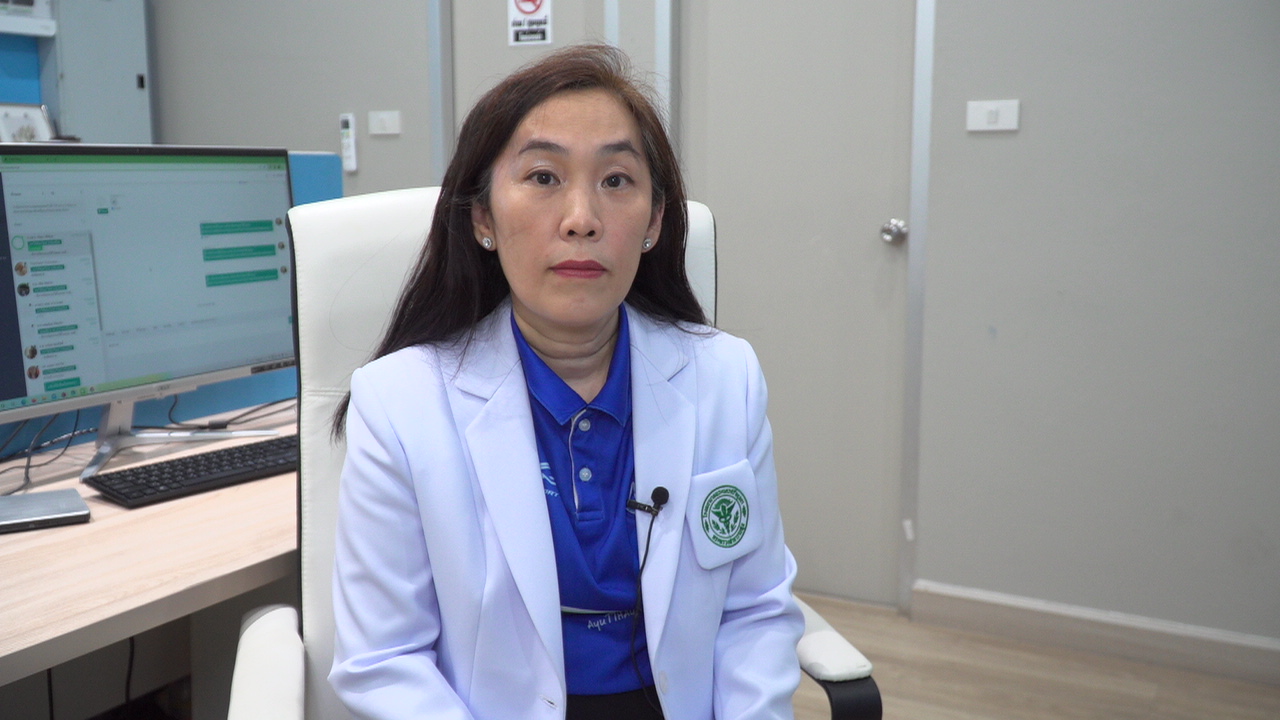
“The health of patients living with diabetes can be much improved if we can monitor their conditions and encourage them to change behaviors.
This can prevent the development of severe symptoms that will eventually lead to high-cost treatment,” said Dr Saowaluck Chaoponetong, a nephrologist at Phra Nakhon Si Ayutthaya Hospital.
“Similar to kidney failure, which is a high-cost disease. The patients' behavioral changes can improve the health of their kidneys which also means reducing the treatment cost.”
To monitor the health conditions of diabetes patients, the hospital staff arranges VDO calls with patients who must report their blood sugar levels.
The calls can be arranged regularly depending on the availability of the patients and physicians.
Having regular calls help patients better control blood sugar levels while saving them time from traveling to hospitals.
After the calls, doctors will prescribe medicines and ask hospital staff to send the medicines to the patients via post.
However, Dr Saowaluck said that doctors and patients may find some barriers while using telemedicine.
One of those is the doctors’ inability to perform medical checkups and must rely on patients’ reports, which may affect diagnostic accuracy.
Other challenges include technological inaccessibility. Some patients may have poor internet connectivity or are unable to access necessary devices such as smartphones and laptops.
Close prison’s healthcare gap
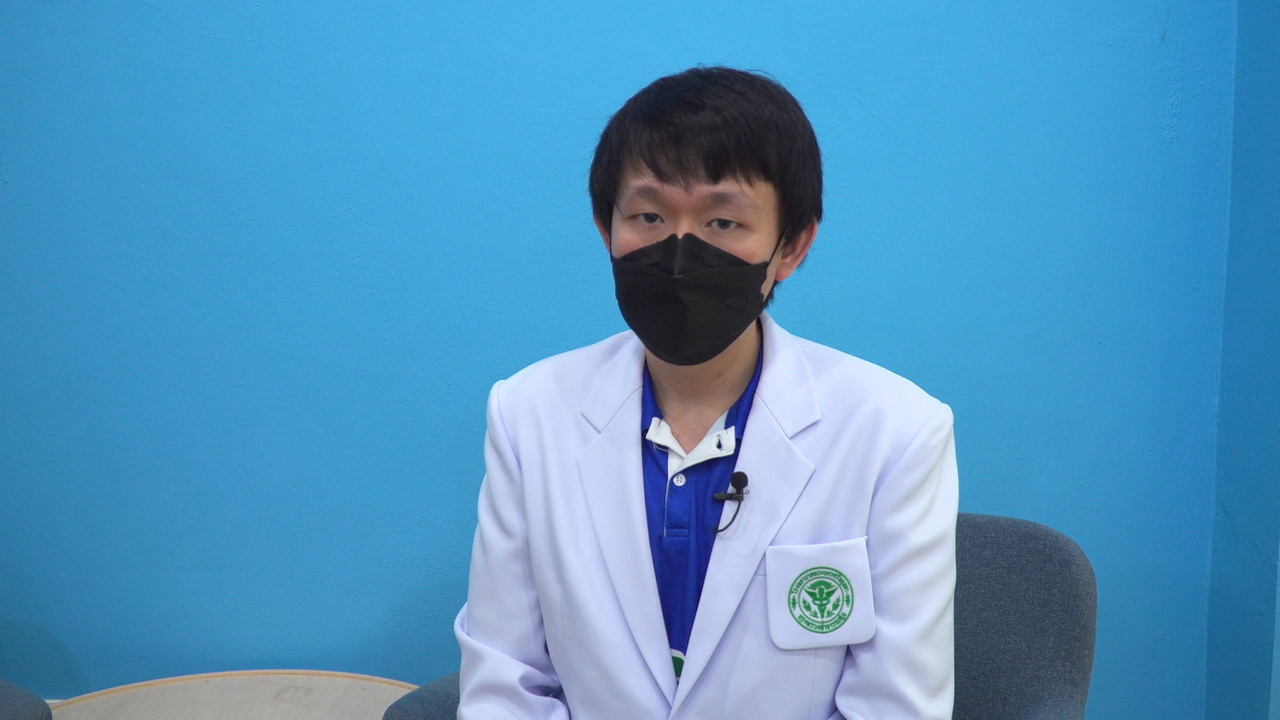
In Phra Nakhon Si Ayutthaya Prison, there are around 6,000 inmates requiring healthcare services.
Being in incarceration means inmates have faced multiple barriers to healthcare.
Telemedicine can close this gap, said Dr Thatree Bositpichet, a family doctor at Phra Nakhon Si Ayutthaya Hospital.
“We target two groups of inmates those living with non-communicable diseases and mental health problems,” he said.
To monitor the condition of prisoners having diabetes, prisoner health volunteers will check the blood pressure and sugar levels of inmates.
They will then send the record to doctors via Line group chat.
For those requiring kidney and liver function tests, the volunteers will collect blood samples and send them to the hospital staff.
Once the doctors read the blood results, they will prescribe the medicines which will be sent to the prison.
If inmates require medical consultation, it can be arranged online.
Access to mental healthcare
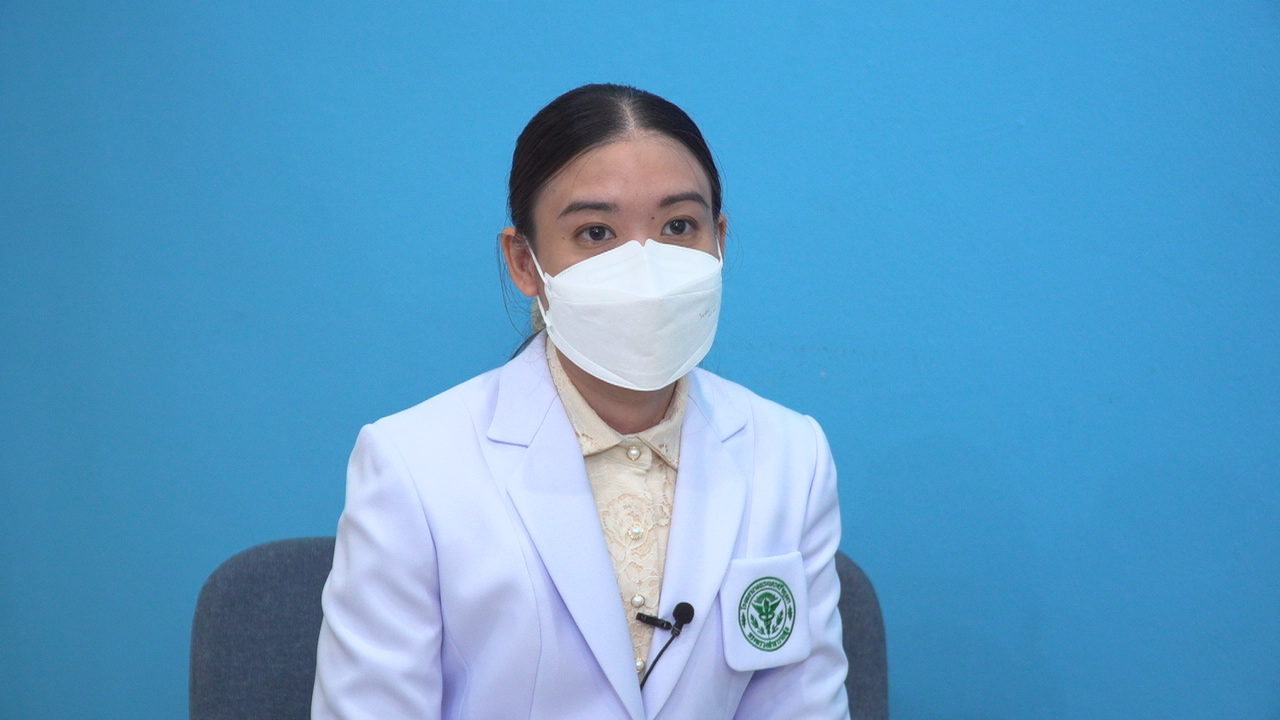
Dr Supariya Saribut, a psychiatrist at Phra Nakhon Si Ayutthaya Hospital said that the most common mental illnesses among the inmates were schizophrenia, drug-Induced schizophrenia, and general mental problems, including depression, anxiety, stress, and insomnia.
Around 40 inmates with mental health problems are currently under the hospital staff’s monitoring. They can access medical consultation via online communication channels and receive medication.
However, there is some limitation in inmates’ mental health diagnosis. Prison staff must be with the inmates during the online sessions with doctors, meaning the inmates may not feel comfortable telling their whole stories.
With lessons learned from Phra Nakhon Si Ayutthaya Hospital, telemedicine has become important in increasing people’s healthcare access, especially those in marginalized groups.
Doctors must assess the readiness of patients for telemedicine adoption. Patients must have stable health conditions and have accessibility to the internet and communication devices.
